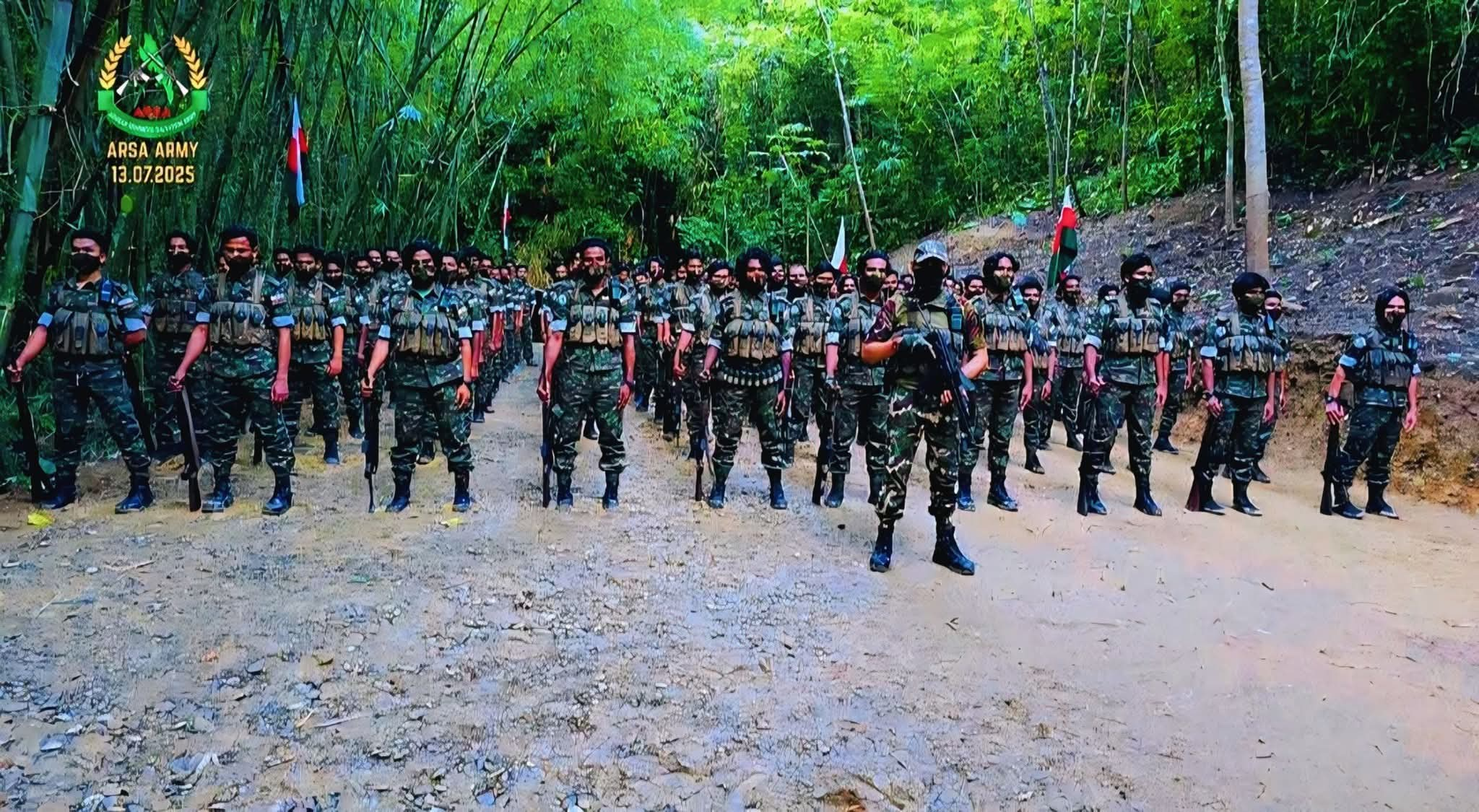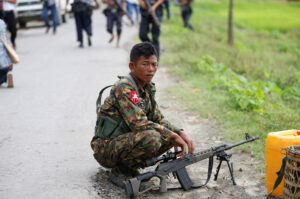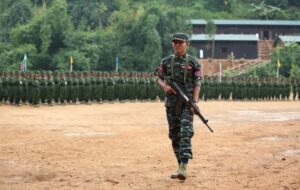Summary:
Recent claims by the Arakan Army (AA) alleging that “corrupt elements” within the Border Guard Bangladesh (BGB) are assisting the Arakan Rohingya Salvation Army (ARSA) during recent operations (18/09/2025) have been categorically denied by all relevant parties. Both ARSA and the BGB Headquarters have dismissed the allegation as baseless and politically motivated. ARSA’s main leadership have been captured and arrested and in custody of Bangladesh Police.
Assessment:
The accusation appears to reflect internal strain within the Arakan Army, which has faced mounting operational pressure following renewed assaults by the Myanmar military (Tatmadaw) and other armed factions active in Rakhine State. The AA’s difficulties in maintaining control over previously held territories point to declining cohesion and tactical setbacks rather than external interference.
From Bangladesh’s perspective, the fighting inside Myanmar remains an internal matter, as long as it does not spill across the border. Dhaka’s security policy towards Myanmar’s rebel groups and junta forces remains one of strict non-involvement and territorial defence.
Border Security Concerns:
In recent months, AA fighters have abducted and tortured Bangladeshi fishermen, often operating within or near Bangladesh’s territorial waters. Such incidents have severely strained informal liaison channels and raised questions about the AA’s claim of administrative capability in the areas it controls. These criminal acts also undermine any pretence by the group of governing Rakhine State in a disciplined or civilised manner.
Operational Outlook:
The AA’s apparent tactical failures against ARSA and RSO (Rohingya Solidarity Organisation) forces suggest that its combat capabilities are significantly overstated. For Bangladesh, the optimal course of action is not direct intervention, but the tightening of border control and the disruption of any logistical or smuggling routes that sustain AA operations. Such measures would impose serious operational constraints on the group and could accelerate its military decline.
Reports indicate that a number of AA personnel have recently crossed into Bangladesh and surrendered to BGB units, further reflecting the deteriorating situation of the insurgent group.
Strategic Context:
No faction within Myanmar—neither the junta nor insurgent groups—possesses the military or logistical capacity to challenge Bangladesh. The ongoing internal fragmentation within Myanmar and the collapse of central authority across several states severely limit the possibility of any external confrontation with Bangladesh.

Khaled Ahmed is a seasoned former intelligence analyst and military expert from the Netherlands, bringing over 15 years of specialised experience in operational intelligence, threat analysis, and strategic defence planning. Having served in high-level, classified roles within Dutch military intelligence, he possesses rare expertise in European security architecture, NATO doctrine, and asymmetric warfare. Khaled’s deep operational insight and international perspective enable him to deliver precision-driven intelligence analysis and forward-looking strategic forecasts. A trusted contributor to high-level risk assessments and security briefings, he offers readers clarity on complex defence and security challenges. Khaled leads the National Security and Fact Analysis sections at BDMilitary. He holds a Master’s degree in International Relations from the University of Groningen, The Netherlands, and is fluent in Dutch, French, and Arabic — combining linguistic dexterity with operational expertise to analyse security issues across cultures and regions.



